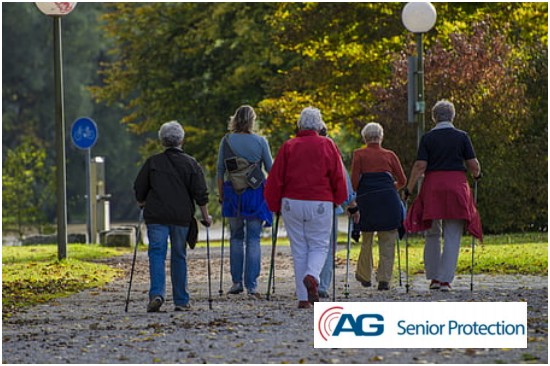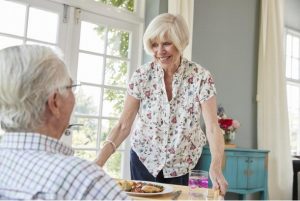COVID-19 and Mental Health: Tips for Seniors to Protect Themselves
As the COVID-19 pandemic continues to stretch on through the second half of 2020, the impacts of the rapid changes in how individuals interact with each other are being felt by all layers of society. The shock of such an unprecedented global crisis, public health-sanctioned social restrictions and physical distancing, and 24/7 news coverage on illness and medical disasters all contribute to anxiety and stress experienced in varying levels by a significant number of people across the world. A Canadian study further postulated that older adults might be especially affected as they now might have less frequent contact with their family physicians, who are most involved in treating mental health concerns (1).
Seniors are particularly at risk of having their mental health impacted as certain vulnerabilities increase with age. There is a higher prevalence of conditions such as health anxiety and chronic stress in the later ages. Baseline loneliness also is a major problem for older adults in Canada, with about 50% of individuals over 80 reporting they feel lonely (2). Seniors also are overall less comfortable with using technology as a tool to keep in touch with loved ones. Further, in all the information overload on the pandemic, anyone might be misled by misinformation, but this is even more common in older adults less familiar with the Internet. All these factors lead to some seniors feeling overwhelmed (3).
The good news is that there are certainly some steps that older adults can take to protect themselves against the negative impacts of the pandemic to their mental health.
-
Exercise – Firstly, exercise does wonders for feelings of anxiety and depression. Getting about 150 minutes of physical activity per week regularly is linked to a healthier state of mind – the pleasure-inducing endorphins released through exercise even help with pain management (4). One great method of getting exercise is taking regular walks or going on a hike. To ensure that the older adult does not get lost or find themselves injured and
alone, Senior Protection offers GPS-tracking and fall detection features in their line of products. In case of emergency, their location will be tracked so that emergency services can be dispatched to help. This allows for peace of mind for them and their family that they will not be truly alone or without access to support while getting their exercise. -
Staying connected with loved ones – Although many older adults feel uncomfortable with using technology, this is a skill that definitely can be learned! Having younger members of the family teach older members to use video calling or messaging software can lead to an excellent method to stay current with friends’ and family’s lives.
-
Reinforcing protection at home – Older adults often choose to stay at homes into their later years (about a quarter of Canadians over 65 do so). They and their loved often more comfortable knowing that there is a system in place to keep them safe. Many choose to invest in Senior Protection products, such as the Personal Emergency Response System (PERS). PERS is available in the form of a pendant, bracelet, or belt clip, and features fall detection, GPS capabilities, Geo fencing, and a 24/7 two-way voice service in case help is needed. In this way, the individual has peace of mind that someone will know if something goes wrong while they are at home. Loved ones as well can be reassured via text notifications that the older adult, though living independently, is safe and not completely alone.
-
Volunteering – Giving back to their local community is a way that many older adults build purpose. It is also an excellent way to remain engaged and practice certain skills. Even during this pandemic, there are many opportunities to donate one’s time, such as through virtual check-ins on peers, or by making care packages for the less fortunate.
-
Picking up a new hobby – Learning new skills at any age is a great way to direct one’s focus on something productive. Engaging in a hobby might be the perfect way for an older adult to calm frantic thoughts, for example.
Although the pandemic has taken a mental toll on many groups of people, the above ways might be helpful for older adults especially to build mental fortitude and remain engaged.
1. Flint AJ, Bingham KS, Iaboni A. Effect of COVID-19 on the mental health care of older people in Canada. International Psychogeriatrics. 2020 Apr 24:1-4.
2. Programs and services for seniors in Canada
3. Meng H, Xu Y, Dai J, Zhang Y, Liu B, Yang H. Analyze the psychological impact of COVID-19 among the elderly population in China and make corresponding suggestions. Psychiatry research. 2020 Jul;289:112983.
4. Menec VH, Chipperfield JG. Remaining active in later life: The role of locus of control in seniors’ leisure activity participation, health, and life satisfaction. Journal of aging and health. 1997 Feb;9(1):105-25.







